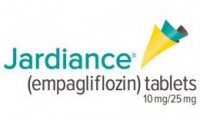-
Sangamo Announces Treatment of First Patient in Landmark Phase 1/2 Clinical Trial Evaluating In Vivo Genome Editing for MPS II
- Source: finance.yahoo
- 417
- November 17, 2017
-
Salt raises blood pressure, but our gut bacteria can stop it
- Source: medicalnewstoday
- 708
- November 17, 2017
-
How common are flu shot side effects?
- Source: foxnews
- 506
- November 17, 2017
-
Medical first-Doctors attempt to gene-edit a living patient’s DNA
- Source: flipboard
- 428
- November 16, 2017
-
New dye gives scientists a clearer insight into the brain
- Source: sciencedaily
- 409
- November 16, 2017
-
Loxo Oncology Lands $1.55B Cancer Tie-Up With Bayer
- Source: Biospace
- 832
- November 16, 2017
-
Cholesterol Crystals Are Sure Sign A Heart Attack May Loom
- Source: scienmag
- 535
- November 15, 2017
-
AstraZeneca-FASENRA Gets US FDA Approval For Severe Eosinophilic Asthma
- Source: businessinsider
- 568
- November 15, 2017
-
US regulators approve first digital pill to track patients
- Source: medicalxpress
- 506
- November 15, 2017
your submission has already been received.
OK
Subscribe
Please enter a valid Email address!
Submit
The most relevant industry news & insight will be sent to you every two weeks.













